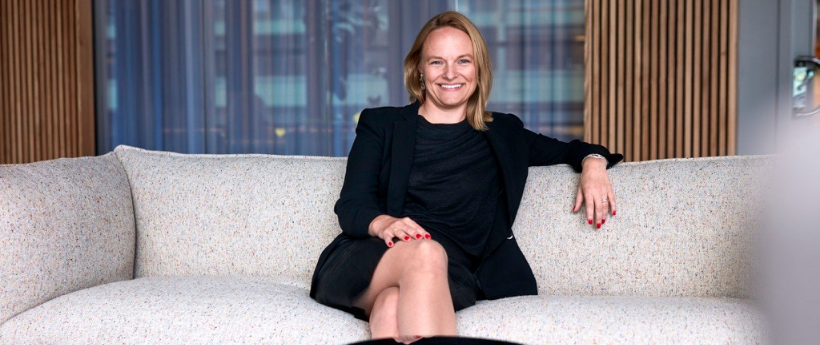Caroline Falconer joins as new Deputy Secretary General
As of 9 May, Caroline Falconer has taken on the role as Deputy Secretary General and Head of Operations at the SCC. As a former Legal Counsel at Vattenfall, she brings valuable insights on what the business community is looking for in arbitration services.
Published 2022-05-30

Congratulations and welcome in your new role as Deputy Secretary General with operational responsibility! Can you tell us about your professional background and interest in disputes and international arbitration?
"Thank you! I studied law at Stockholm University with the clear goal to work with disputes, went on to work as law clerk at the Stockholm District Court and completed a LL.M. in international dispute resolution in London. Following this, I spent almost 10 years at three different Swedish law firms specializing in dispute resolution. During my law firm years, I co-founded SWAN, Swedish Women in Arbitration Network; a professional network for women with an interest in arbitration."
"I then decided to try something new and went on to “the other side” and worked as senior legal counsel at Vattenfall for almost 7 years."
What are you most looking forward to in your new role at the SCC?
"It is great to have become part of this excellent team and am honored to get the opportunity to contribute to this top-end arbitration institute’s journey ahead. Sweden has a strong position when it comes to arbitration, and the SCC is, I believe, the most modern arbitration institute in the world. I plan to ensure that this strong position is maintained."
As a former legal counsel, what are the end users in the business community looking for in terms of services from SCC and other arbitration institutes?
"That is a very good question! I believe that the business community is looking for firstly a proper toolbox with different types of methods to resolve disputes to choose from, secondly a flexibility in proceedings and thirdly that the arbitration institutes keep up with digitalization."
"Most companies are of course working hard to avoid disputes - sometimes harder than I understood during my years at law firms. However, if the dispute cannot be avoided, companies are in most situations looking for a method to resolve the dispute that matches the type and size of that dispute. So, the SCC must provide a toolbox with different types of methods that the companies and their counsels may choose from. I believe that many companies will be greatly helped by my favorite tool in the SCC toolbox, the SCC Express. The SCC Express is a method well suited for longer supply agreements, joint ventures, co-ownerships and other types of longer cooperation agreements. The SCC Express is quite new, and when the companies understand its benefits, I believe that we will see it used a number of times each year."
"As I mentioned previously, time and cost – of course together with a correct result – is of utmost importance when resolving disputes and a proper arbitration institute should therefore offer flexible arbitrations, giving the parties and the tribunal the possibility to form the process as fits the dispute in the best way. Finally, society has of course seen a drastic digitalization over the last few years and the new ways of working have resulted in companies requiring the arbitration institutions to “keep up” with these new ways of working. SCC has come far on this journey but is constantly working to being able to offer the users the best and most convenient services."
You have been a spokesperson for the Swedish Company Lawyers Association (Sveriges Bolagsjurister) for a couple of years. Will you stay on?
"Yes, I will stay until next year when my elected term ends. I have been the chairperson of the board for two years and I still feel strongly for its issues and believe that I still can make the world a little bit better for Swedish legal counsels."
Read more about the SCC Secretariat